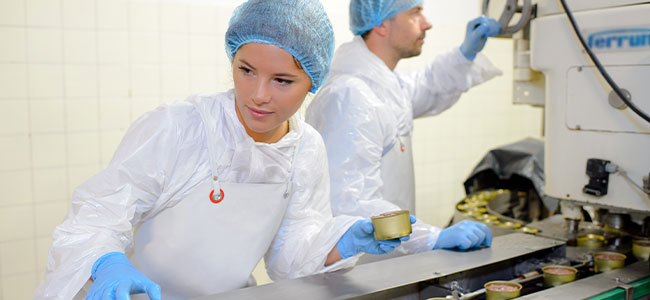
Enhancing Safety Practices for Essential Workers in Food Production
Essential safety measures for workers in the food production industry must focus on risks, compliance and strategies—from physical hazards to mental health support—to foster a safer workplace.
- By Jane Marsh
- Apr 22, 2024
The world relies on essential workers in the food production industry daily, often without realizing it. These dedicated individuals are the backbone of everyone’s daily sustenance, ensuring people always have nutritious meals. However, their commitment comes at a cost. They face significant challenges, particularly concerning health and safety.
From the risks of operating heavy machinery to the exposure to harmful chemicals and the constant threat of workplace accidents, these workers navigate a minefield daily to fulfill their roles. Recognizing their contributions and the difficulties they endure is crucial to keep the food production industry thriving.
Understanding the Risks
According to the U.S. Bureau of Labor Statistics, the agricultural sector remains the most dangerous in the U.S., a stark reminder of the critical need for heightened safety measures. In food production operations, workers are constantly exposed to various risks that can threaten their health and safety.
These include physical hazards from operating complex equipment, chemical dangers and biological threats. Each of these hazards requires specific attention and mitigation strategies to ensure the safety and well-being of the workforce.
Moreover, the rising global meat consumption significantly impacts the industry’s carbon footprint and stresses production. It presents environmental challenges people cannot ignore.
The repercussions of these risks on worker well-being and productivity are profound. Injuries, illnesses and the psychological impact of working in high-risk environments can lead to absenteeism, turnover and decreased efficiency. It underscores the importance of comprehensive risk assessment as the foundation of developing and implementing effective safety measures.
Legislative Framework and Compliance
Several crucial regulations in the food production industry govern worker safety, including OSHA standards, the Food Safety Modernization Act (FSMA) and local health codes. Compliance with these regulations is not just a legal requirement but also a moral obligation to protect the health and safety of workers.
Organizations can swiftly adapt safety protocols by staying informed about legislative changes. It also ensures that practices are current with the latest standards and reflects a commitment to creating a safe, healthy work environment. This proactive approach safeguards the workforce and reinforces the company’s reputation as a responsible and ethical employer.
Implementing Effective Safety Measures
Effective measures to enhance worker safety in the food production industry include comprehensive training programs, personal protective equipment (PPE) and adopting ergonomic practices to prevent strain and injury. Notably, food and beverage processing machinery is the leading contributor to severe injury reports collected by OSHA, emphasizing the need for these measures.
Technology and innovation are pivotal in this arena, with automated systems that reduce human contact with hazardous material and minimize risk. Beyond physical safety, mental health support is crucial. Providing resources for mental health ensures a holistic approach to worker well-being and boosts productivity and morale. Implementing these strategies takes significant steps toward safeguarding the workforce against physical and psychological hazards.
Fostering a Safety Culture
Creating a culture that prioritizes safety is not just about adhering to regulations; it builds a foundation for more eco-conscious and effective safety practices. Interestingly, 80 percent of the world’s leading companies have recognized this value and implemented sustainable practices.
This shift toward greener practices enhances safety and contributes to the overall well-being of employees and the world. Embedding safety into the corporate culture fosters an environment where safety becomes a shared value, leading to more engaged staff and innovative risk management approaches.
Moreover, engaging workers in safety initiatives cultivates this culture. Strategies such as holding regular safety meetings provide a platform for open dialogue and shared learning. Implementing feedback mechanisms allows employees to contribute their insights and concerns, making safety a collaborative effort.
Training programs tailored to the specific needs of the workforce can educate them on best practices and empower them to take action. Leadership also models safety behaviors and sets clear expectations to inspire everyone to take responsibility for their safety and the safety of others. This collective approach enhances outcomes and builds a sense of shared purpose within the organization.
Continuous Improvement and Monitoring
Adopting a continuous improvement mindset toward worker safety is essential. Regular safety audits, diligent monitoring of safety metrics and thorough incident reporting identify and address safety gaps, which ensure a dynamic risk management approach. Moreover, scheduled maintenance reduces costs, streamlines production processes and significantly enhances the safety of the work environment.
Leveraging data and feedback empowers the organization to make more informed decisions, leading to better safety outcomes. This proactive approach safeguards the well-being of the workforce and contributes to a culture of responsibility where every employee maintains a secure working environment.
Ensuring the safety of essential workers in the food production industry is paramount to sustaining the food supply and protecting those who make it possible. Professionals must continually review and enhance their safety practices to uphold the highest worker protection and well-being standards.